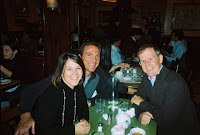Our Daily Bread
What does "Give us today our daily bread" mean? It means that we are asking God to take care of all our physical needs. The Bible teaches us that God not only created all things but provides for their needs as well. All look to you to give them their food at the proper time. When you give it to them, they gather it up; when you open your hand, they are satisfied with good things. (Psalm 104:27-28) The eyes of all look to you, and you give them their food at the proper time. You open your hand and satisfy the desires of every living thing. (Psalm 145:15-16) "Therefore I tell you, do not worry about your life, what you will eat or drink; or about your body, what you will wear. Is not life more important than food, and the body more important than clothes? Look at the birds of the air; they do not sow or reap or store away in barns, and yet your heavenly Father feeds them. Are you not much more valuable than they? Who of you by worrying can add a single hour to his life? An...
